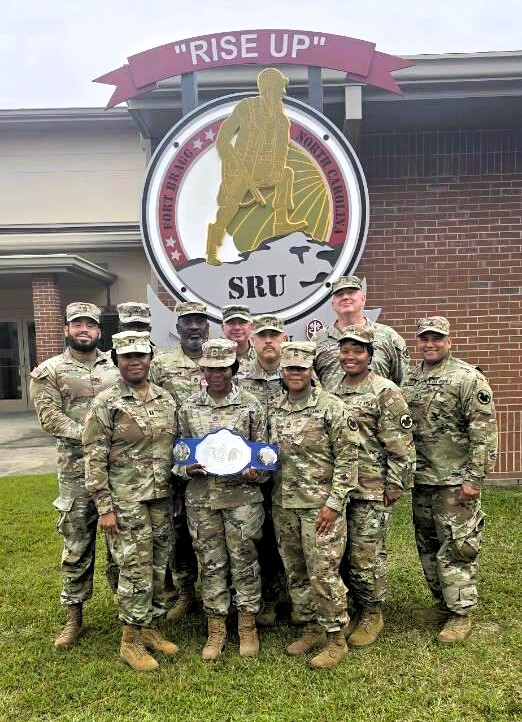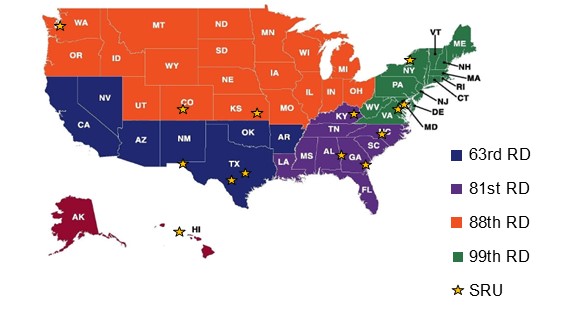OBLIGATION TO OUR SERVICE MEMBERS:
President Lincoln's second inaugural address so eloquently states what our obligations are to families of wounded service members:
"... to care for him who shall have borne the battle and for his widow and his orphan."
OUR MISSION STATEMENT:
The Army Reserve Warrior Transition Program is the proponent to provide centralized assistance in clarifying administrative, legal, and medical concerns that warrants Army Reserve engagement as Soldiers in Transition navigate through their Comprehensive Transition Plan.
 PROGRAM HISTORY:
PROGRAM HISTORY:
In 2012, the Army Reserve Command Team conducted several visits to Warrior Transition Units (WTU) and Community Care Units (CCU) in CONUS and OCONUS to meet with our Wounded Warriors to thank them for their service and ensure their needs were being met by their WTU Chain of Command. During these visits, Army Reserve Soldiers in Transition expressed a need for assistance with administrative, medical and legal issues requiring OCAR/USARC staff engagement to resolve. The Army Reserve Warrior Transition Program was created in 2013 to assist Reserve Soldiers with troubleshooting obstacles presented during their path of healing. Support Coordinators are ready to engage at all times to facilitate the process and assist when needed. In 2020, the WTU transitioned to the Soldier Recovery Unit (SRU).
PROGRAM SCOPE:
Army Reserve Warrior Transition Support Coordinators provide the following support services to our Soldiers in Transition:
Administrative and Finance
- Promotion
- REFRAD
- MRP Processing
- DD 214 issues
- Mandatory Retirement Date
- LOD issues
- Assignment vs. Attachment
- Lack understanding of SRU entry/exit criteria
- PDHRA Completion
- PHA Completion
- Transition Job Assistance
- Specialty AOC/MOS training
- Reserve Pay Processing
- Administrative Orders
- Transition Orders
Physical Disability Evaluation System
- MEB/PEB Process not understood
- Unnecessary process delays
- NARSUM completion
- PEBLO to Soldier follow-up
- SRU/RM2 Transfers
Medical
- Medical Questions and Concerns
- Provider concerns
- Request for Second Opinions
- Unresolved Medical Condition
- Surgery concern/issues
- Definitive/maximum care
SUCCESS STORIES
Our Support Coordinators are committed to their Soldiers' process of healing. Once that journey is complete, Soldiers in Transition may return to duty (RTD) or medically discharge and become productive citizens in their communities. The Warrior Transition Program is dedicated to helping Soldiers in Transition down the path to recovery that best fits their goals and abilities. Please see below for some of our success stories.
WARRIOR TRANSITION SPECIALISTS LOCATION AND CONTACT INFORMATION
Our USAR Warrior Transition Support Coordinators are centrally located in Texas and North Carolina. The graph below indicates the current SRU sites where our personnel stand ready to engage.

ARCP link for all SRU/RM2 packets: For packet processing click here: Entry Packet (CAC enabled)